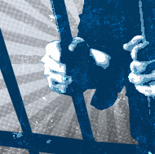LGBT Illinois citizens have long struggled against a legal system that treats families of same-sex couples as legal strangers. The well documented economic and legal toll of that discrimination galvanized the general public’s support for passage of the Illinois Religious Liberty and Marriage Fairness Act, now set to go into effect on June 1, 2014. After passage of the measure, the ACLU of Illinois, along with our allies at Lambda Legal, asked a federal court to insure that the promise of marriage was real for those facing serious illness -- assuring that couples with a partner facing such a circumstance did not have to wait until June. We told the court that if the ailing partner passed away before June, then the guarantee of marriage would never be realized.
In today's Chicago Tribune, Ron Grossman puts a personal, intimate face on the couples facing this crisis. Grossman accompanied Ron Dorfman, one of the ACLU of Illinois clients who successfully petitioned for the allowance of expedited licenses, as he picked out a wedding cake to celebrate his marriage to Ken Ilio. Noting Dorfman’s pleasure and delight, Grossman considers the personal pain and sense of social isolation others must have felt because they were legally barred from experiencing such simple human joy.
Read the article.
Date
Wednesday, February 5, 2014 - 1:30pmFeatured image

